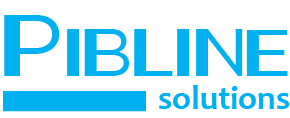We are bringing a complete Pipeline Integrity Management system to the market…
Our years of Pipeline Integrity experience have shown that Pipeline integrity field data collection is not collected well nor is it optimized for effective analysis and decision making. In particular, we are finding that many Pipeline Operators and their Contractors are not processing and ultimately mining Pipeline Integrity data effectively leading to costly delays and inefficient integrity programs.
Currently the Industry is mainly focused on ILI data collection and analysis but missing other valuable data sources to provide the complete Pipeline health record.
Current enterprise tools are focused mainly on Inline Inspection (ILI) pipeline integrity reporting rather than being integrated into existing business processes in an easy to use fashion. Our methodology has proven that true integrity management programs require the use of ILI data combine with filed Non-Destructive Examination (NDE) data to tell the true picture of what is happening to a pipeline.
Pibline has a field based NDE application (referred to as version 1) in use today by many Pipeline Operators in Western Canada. Our field based application creates NDE a standardized way of collecting field data which eliminates data collection errors, reduces rework and implements workflows to streamline data sharing.
We aim to create a paradigm shift in how pipeline data management is conducted by Pipeline Operators and their key contractors – this is our version 2 product. Think of us as the Salesforce.com of the Pipeline Integrity Management (PIM) industry.
What issues are these business problems causing?
- Inefficiencies exist with current processes (poor communications between all of the parties involved and no one has access to real-time integrity data);
- Data management is not optimized between the office and field and within the office;
- Project management processes are not optimized and integrity management is inefficient;
- Regulatory compliance issues result because data are not centralized and it is difficult to determine who made decisions on pipeline rehabilitation; and
- It is hard for a pipeline operator to provide defensible evidence on what fixes have been done to a pipeline segment (girth weld);
The question then arises – Is a Pipeline Operators limited integrity money being spent wisely? All of the bullets listed above highlight wasted money, time and inefficiencies.
This is where Pibline comes in…
“the industry’s only pipeline integrity health record system”
we are revolutionizing how pipeline integrity data management is performed!
What makes us unique?
We are working hard to eliminate unnecessary data management steps to create new efficiencies to allow operators to do more in less time and meet regulatory requirements and ultimately to design the best integrity programs to extend the life span of pipeline assets.
